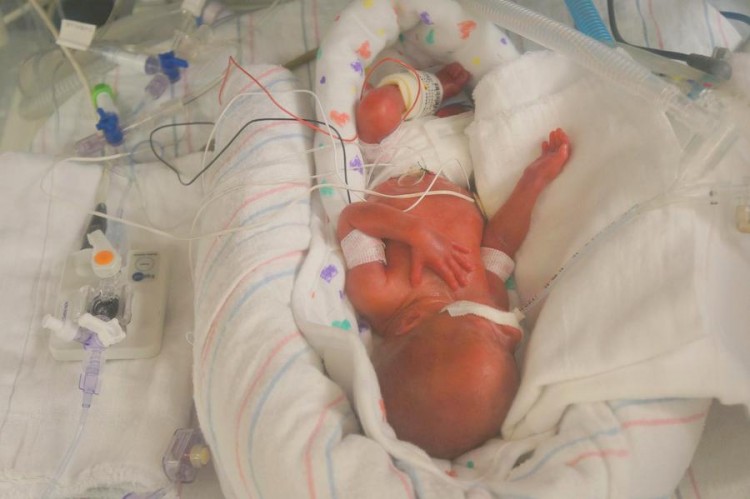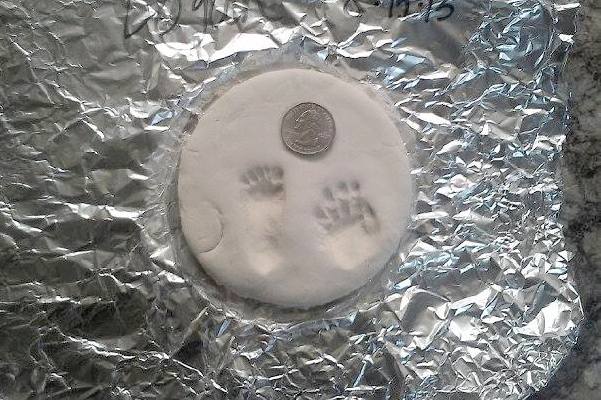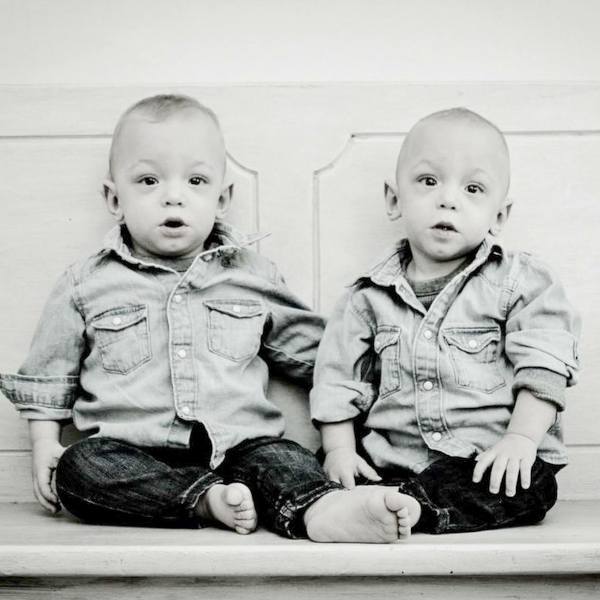When I hear most mothers’ birth stories, they talk about water breaking, contractions, epidurals and that special moment they first laid eyes on their baby. The overwhelming feeling of love, the instant bond, deciding if they look more like Mom or Dad. A tinge of jealousy usually hits first, but truthfully, I’m happy for them. I’m happy that the first sight of their baby didn’t hurt deep inside. I wish they knew how lucky they were to be so blessedly happy when they first laid on eyes on their new little bundle of joy.
I went into labor with our twin boys at 21 weeks. I was given an emergency cerclage and laid in the Trendelenburg position with my feet higher than my head for the next two weeks until our little guys came at 21 weeks. I was under anesthesia for my C-section, so between waking up and the doctors and nurses stabilizing them, it was about 12 hours before I would be wheeled in see my babies for the first time. I wish someone would have warned me.
I knew they were early and would be small, but I had no idea what I was about to see. I scrubbed in and walked over to see my son, Lane, baby A. I stopped in my tracks — stunned and speechless. It hurt to look at my children. The first look that was supposed to be a life-changing moment was incredibly painful. They were bright red, their skin looked raw, their eyes were still fused shut and they had about 15 little tubes coming out of each of them. And they were the tiniest babies I had ever seen — 1 pound, 12 ounces and 1 pound, 6 ounces and just 12 and 11 inches long.
The room went silent as I laid eyes on my babies, and my husband and I just cried. Maybe it was guilt that I couldn’t carry them longer or sadness because in that moment we didn’t know if they would make it another day, but I could barely look at them for longer than a few seconds. We stayed for 10 minutes until I asked to go back to the seclusion of my room. It was without a doubt the worst moment of my life.
That’s pretty much what I did for weeks afterwards. I didn’t want to see people or talk to them on the phone, not because I didn’t want to hear from them, but because I knew I would breakdown. The thought of having to talk to people about the boys gave me anxiety. I found security in our small travel trailer that we lived in — just a few short miles from the hospital. And slowly, that became my new normal. Our experience was truly life-changing, and I’m no longer the person I used to be. But while I was in it, experiencing it and living it, I didn’t quite know how to handle it.
Fast-forward two years later after a long four- and six-month stay in the hospital, my sons, Logan and Lane, are doing wonderfully. They’re walking, starting to talk and doing the things normal toddlers do. I look at them, and it still hurts. But not out of fear — it’s out of love. I still think about the day they were born often but in the rearview mirror. I know that through all the trials and tribulations, I am now a better person.
I still think about that day often and still think about the what-ifs and whys. And while I may envy the “moment” most women get, mine was just different, and I’m OK with that.
The Mighty is asking the following: What’s one thing people might not know about your experience with disability and/or disease, and what would you say to teach them? If you’d like to participate, please send a blog post to community@themighty.com. Please include a photo for the piece, a photo of yourself and 1-2 sentence bio. Check out our Share Your Story page for more about our submission guidelines.




